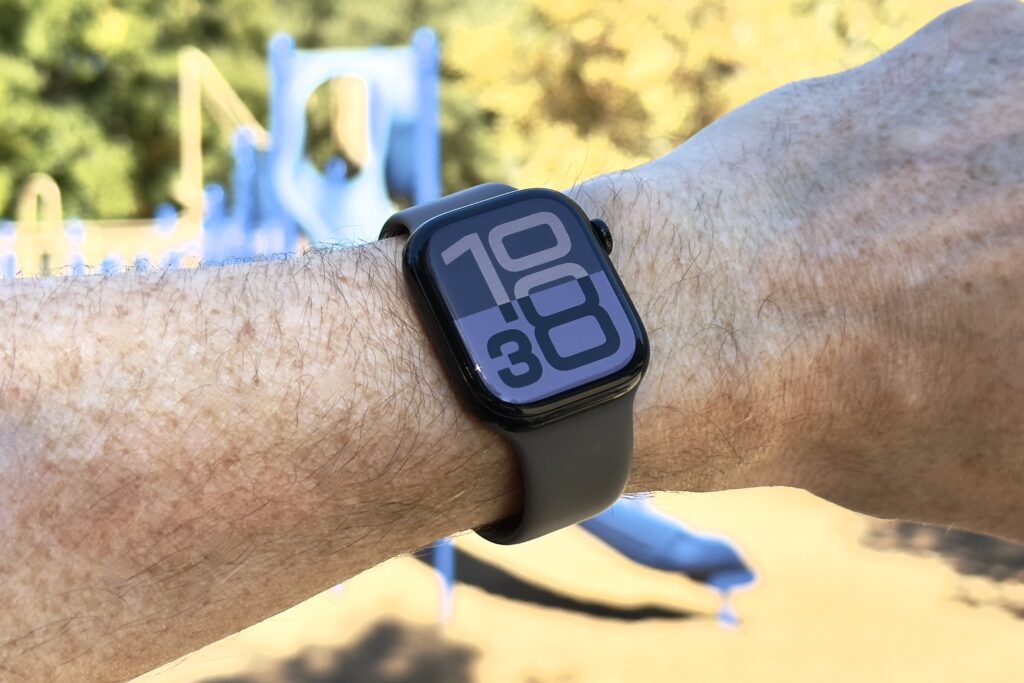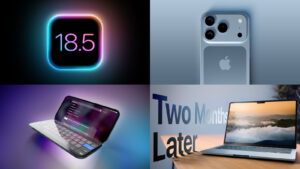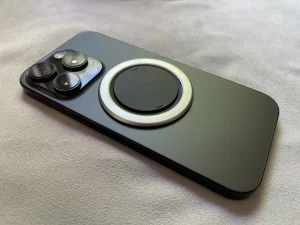Apple Watch Series 10 review: Modest improvements to a proven formula

Expert’s Rating
Pros
Bigger, easier-to-read display
Faster charging
Refined design
Cons
Still only 18 hours battery life
Blood Oxygen unavailable in the U.S.
Our Verdict
After 10 years of Apple Watch releases, we know what to expect, and we are neither surprised nor disappointed. This is a set of nice, modest tweaks to a proven formula that needs little fanfare.
Price When Reviewed
This value will show the geolocated pricing text for product undefined
Best Pricing Today
Price When Reviewed
$399
Best Prices Today: Apple Watch Series 10 (42mm)
For the last several years, the Apple Watch has undergone a relatively modest series of yearly upgrades. It has more-or-less looked and felt the same since the Series 4, that huge upgrade that gave us a much larger display area (with rounded corners), a big leap in performance, and the impressive ECG feature.
Since then, the watch has gotten just a tiny bit better each year. Maybe just a touch faster. Maybe there’s a new sensor, like blood oxygen. Maybe the display is a little brighter. We had hoped the rumors of a iPhone X-style overhaul with the Apple Watch Series 10 were true. They weren’t. This year’s update once again takes very modest, measured steps to improve Apple’s winning formula.
The Apple Watch Series 10 is my favorite Apple Watch, but it’s still only a little better than the Series 9, which wasn’t very different from the Series 8, which was only slightly better than the Series 7…
Apple Watch Series 10 design: Bigger and flatter
It has been a while since Apple changed the physical design of the Apple Watch, so the Series 10’s new design is notable. And while the updated shape of the Series 10 is not nearly as dramatic as you might have hoped, it is noticeable.
The watch is a little larger on the wrist, but also thinner and flatter, with sides that are even more rounded. The glass top curves smoothly to match the curve of the case with only the thinnest little line; you can barely see it. In practice, it doesn’t feel a lot different than the earlier models. Perhaps just slightly more comfortable—it’s just a couple of grams lighter (though the new high-end titanium model is a lot lighter than the Stainless Steel it replaces), but that weight is spread out a little more. The ever-so-slightly flatter design tends to catch on cuffs and sleeves a little less, too.
To fit with the flatter shape, the digital crown is redesigned, with a smaller radius. The cellular red dot is also gone. Functionally, it hasn’t changed, but you will notice a slight difference.
Apple
Apple Watch Series 10 display: Easier to see
There are three changes to this year’s model that you’ll actually notice in day-to-day use.
The first is the new speaker design, which Apple thinks is good enough to let you play music or podcasts directly from the watch rather than through a Bluetooth device like AirPods. It’s both surprising how good it sounds considering the size, and also still not good enough that you’d want to use it.
It’s perfectly fine for most podcasts or audiobooks, as long as you’re not in a loud environment, though it does take a heavy toll on battery life. Besides, it would annoy anyone around you. I suggest you stick with your AirPods.
The display is just as bright as the Series 9, which cranks up to 2000 nits in the sunlight and is very easy to see. Apple says the new display here is 40% brighter at an angle, and I don’t know how to quantify that but I definitely could notice that it’s much easier to see the time or a large complication without needing to turn the watch directly toward me. You can readily tell the difference.
The display is physically larger (a little less than 10% bigger) but the black bezels around the display have grown a little in appearance, too. The better viewing angles and slightly larger size does make it easier to read and the expanded touch targets makes precision tapping just a little bit easier.
Foundry
Apple Watch Series 10 features: Better charging, same everything else
Charging speed has improved when used with a fast-charge accessory (any Apple Watch charger from the Series 7 onward and a 20W or better USB-C power adapter). Apple says it goes from 0-80 percent in 30 minutes instead of the 45 minutes you’d have to wait with other recent Apple Watches.
I definitely noticed a significant difference. Generally, I could put my watch on a charging stand at the end of the day when I go to take a shower and take it off after 20 or 30 minutes with a full charge, or nearly so. If I had forgotten to charge my watch and it was too low to wear for sleep tracking that night, a brief 10 minutes on the charger would give me enough juice to last overnight.
Still, the biggest flaw with the Apple Watch is that it’s a “charge every day” device. Faster charging makes this more convenient, but I still want multi-day battery life more than any other possible feature.
Otherwise, the Apple Watch Series 10 continues with the strategy of making very small changes each year. Performance and battery life have remained relatively constant for years—the S9 SiP introduced last year was supposedly a lot faster than the S8 and S7, but we certainly couldn’t tell the difference in practical use, and the S10 in this model seems like the same thing again.
But you’ll sometimes get a new sensor that enables something new, like blood oxygen, overnight temperature, fall detection, or a double-tap gesture. This year, there’s a water temperature and depth gauge, along with the somewhat-improved speaker, larger display, and faster charging.
If you’re in the United States, you’ll also lose the Blood Oxygen feature if you had it on an older watch. Apple is in an ongoing patent battle with Masimo over it and has been forced to disable the feature on new watches sold in the U.S., though they didn’t have to disable it on already-sold watches. The hardware is there and the feature could be re-enabled with a software update, depending on the outcome of the patent dispute.
Should you buy an Apple Watch Series 10?
In our review of the Apple Watch Series 9, we wrote in response to this question: “That depends on what you currently own. If you’re on a Series 7 or 8, I would say no, since the changes won’t really be noticeable. If you’ve got anything older, or if this is going to be your first Apple Watch, then dive on in! The water’s lovely.”
The same applies this year. The changes in this year’s model are not enough to warrant an upgrade for most people using a Series 9 or even Series 8. But these small tweaks each year start to add up to big overall improvements, like compounding interest. If your Apple Watch is three or more years old, you will probably notice and appreciate the improvements in this year’s model enough to justify the price.



